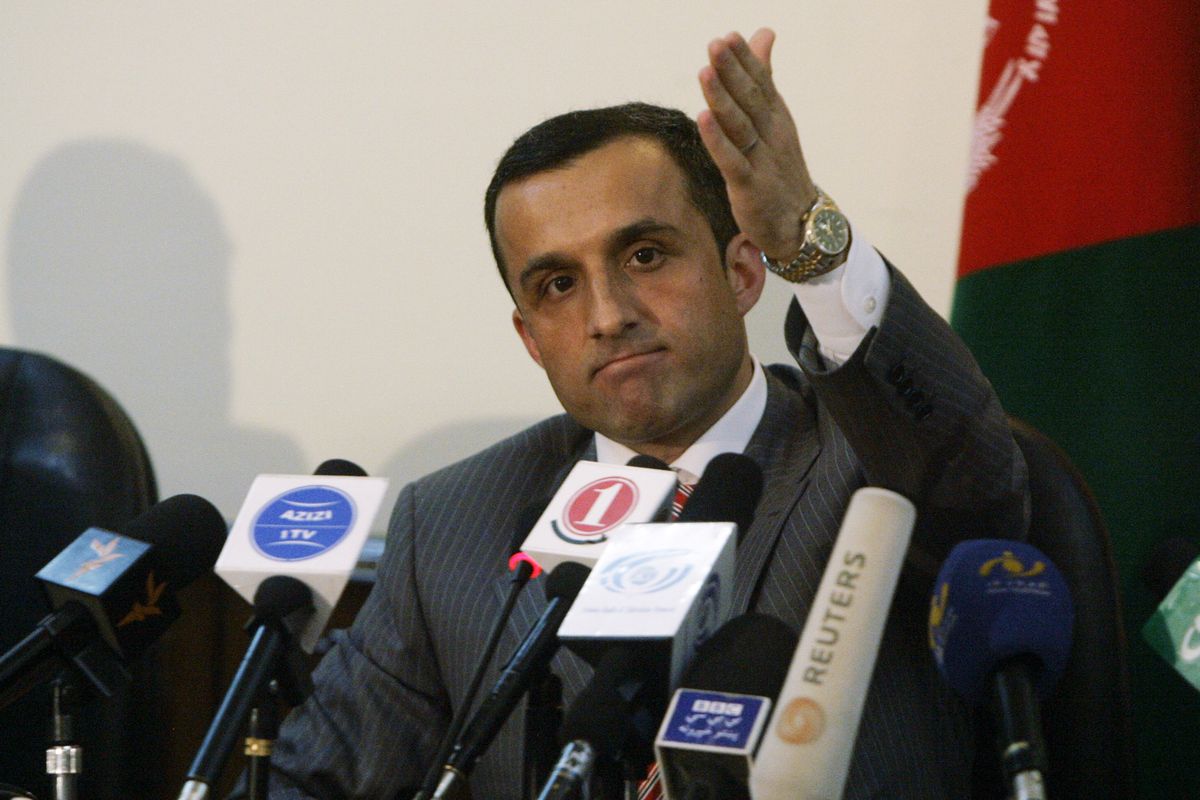Top Afghan security officials resign
Move follows attack on peace gathering

KABUL, Afghanistan – Afghanistan’s top law enforcement official and its intelligence chief stepped down Sunday, taking the blame for last week’s attack by Taliban insurgents on a national peace assembly as President Hamid Karzai addressed the gathering.
The resignations of Interior Minister Hanif Atmar and National Directorate of Security Chief Amrullah Saleh come at a time when Afghanistan, faced with an insurgency that continues to intensify, can ill afford instability in its police and intelligence ranks. Saleh had overseen the country’s intelligence agency since 2004, while Atmar, appointed in 2008, was seen as reform-minded and was admired by U.S. officials.
The U.S. considered Atmar and Saleh two of the most effective ministers in Karzai’s Cabinet. Both had been among the Afghan officials whose reappointment the U.S. supported after Karzai’s re-election last year, the official added. Their removal renewed concern among some U.S. officials that Karzai is a volatile leader capable of rash decisions at odds with Washington’s desires.
On the first day of a peace “jirga” meant as an initial step toward bringing an end to nine years of war, militants tried to break through extensive security cordons and launch suicide bomb and rocket-propelled grenade attacks on the assembly’s 1,600 delegates.
The attack was thwarted and none of the assembly’s participants was hurt. However, it proved embarrassing for Karzai, who had to interrupt his opening speech to urge calm among the delegates as a rocket-propelled grenade landed within 100 yards of the jirga’s tent.
Accepting the resignations, Karzai appointed Atmar’s deputy, Munir Mangal, as acting interior minister and engineer Ibrahim Spinzada as acting intelligence chief.
Afghan law enforcement officials said Sunday that militants were able to rent a house less than a mile from the assembly’s venue, Kabul Polytechnic University, and bury weapons and arms in the yard a few weeks before the jirga began.
Interior Ministry spokesman Zemeri Bashary also said that two militants got past Afghan security checkpoints by disguising themselves as a husband and wife with a baby. One of the militants was a man dressed in a burka, in his arms, he cradled a rocket launcher swaddled to look like an infant. The strategy took advantage of the fact that a male officer searching a woman violates Afghan customs.
The militants launched at least two rocket-propelled grenades toward the jirga tent before Afghan security forces shot and killed them.
Bashary also revealed that the Taliban had been planning a much larger attack against the jirga that entailed as many as 14 suicide bombers and three other militants. Nine militants equipped with suicide bomb vests and other weapons were arrested before they could enter Kabul and are now in police custody.
Before the jirga started, police also arrested three other insurgents, one of whom was from Tajikistan and another from Russia, who were planning suicide bomb attacks against the assembly.